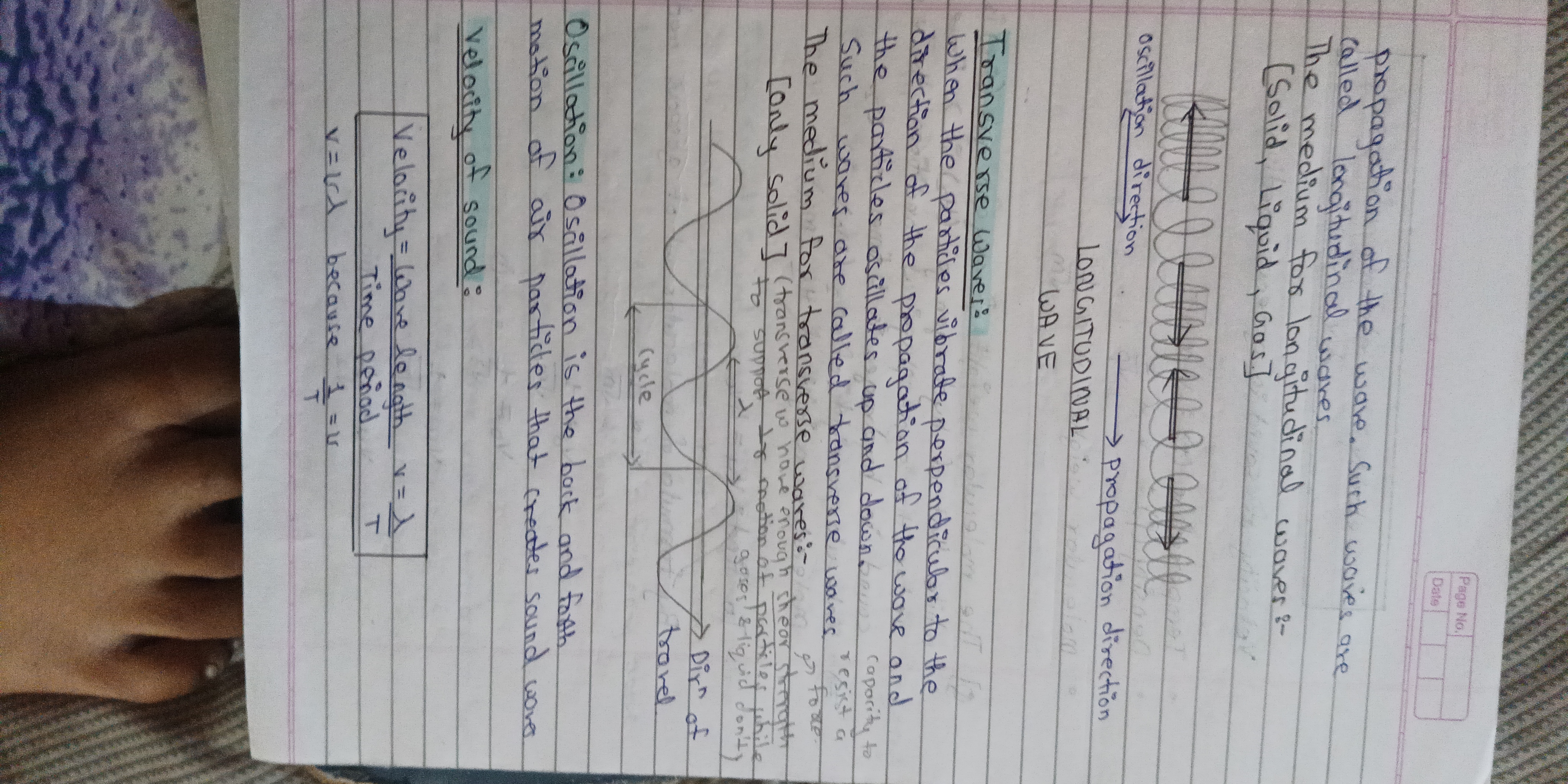What is the velocity of sound and how do transverse and longitudinal waves propagate?

Understand the Problem
The question appears to be about the concepts of wave propagation, specifically regarding velocity and types of waves (transverse and longitudinal). It includes definitions and formulas related to these concepts.
Answer
Sound velocity: v = λ / T; transverse: perpendicular, longitudinal: parallel.
The velocity of sound is calculated as wave velocity = wavelength / time period. In transverse waves, particles oscillate perpendicular to wave direction, and in longitudinal waves, they oscillate parallel.
Answer for screen readers
The velocity of sound is calculated as wave velocity = wavelength / time period. In transverse waves, particles oscillate perpendicular to wave direction, and in longitudinal waves, they oscillate parallel.
More Information
Sound waves in air are typically longitudinal, and their speed is influenced by factors such as temperature and medium properties.
Tips
Ensure units are consistent when calculating velocity, and note that wave type affects particle oscillation direction.
Sources
- 14.2 Transverse and Longitudinal Waves, Speed of Wave Motion - ck12.org
- Wave Speed - ComPADRE - compadre.org
AI-generated content may contain errors. Please verify critical information